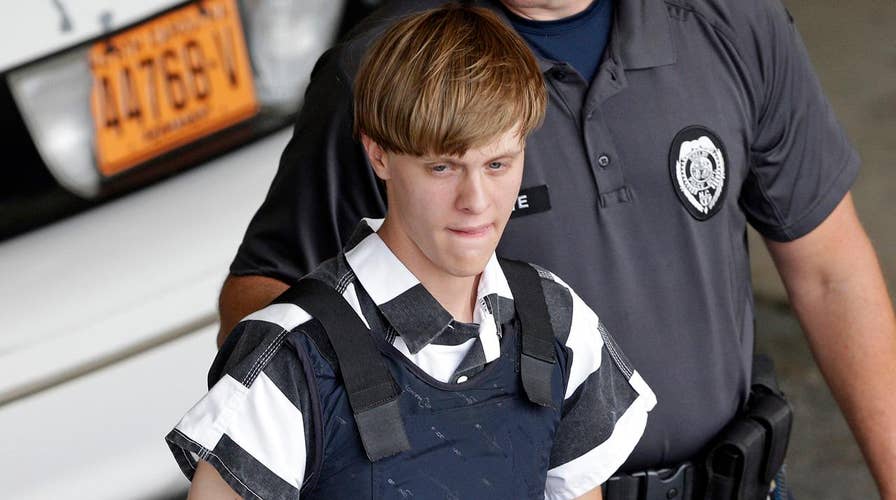Dylann Roof sat quietly as the lead prosecutor in his death penalty trial described Wednesday how he allegedly opened fire on a dozen members of a Charleston church who had welcomed him to a bible study.
“He seemed to the 12 to be harmless,” prosecutor Jay Richardson said during his opening statement. “But little did they know what a cold and hateful heart he had.”
MISTRIAL DECLARED IN NORTH CHARLESTON POLICE SHOOTING CASE
Roof’s lawyer David Bruck, a renowned opponent of the death penalty, told jurors he expects a guilty verdict. But he urged jurors to consider Roof’s background and motivations when they decide whether he should be sentenced to prison for the rest of his life or whether he should be executed.
The large group of observers in the packed courtroom included family members of the nine victims who died in the massacre at the historically black Emanuel AME Church the evening of June 17, 2015.
TWO GEORGIA POLICE OFFICERS SHOT NEAR COLLEGE
Roof, an avowed white supremacist, had initially said he wanted to act as his own attorney. He has since agreed to allow lawyers to represent him in the initial guilt phase of the trial, but not in the sentencing phase. Under this arrangement, Roof himself would have the option to cross-examine witnesses during this later phase — including victims’ relatives.
“Normally you’d have a defense attorney asking the questions and the defendant sitting at the defense table,” said Ashleigh Merchant, an Atlanta-based criminal defense attorney. “But not in this situation. You’d actually have him speaking directly to the victim. And that very well may be the answer as to why he wants to represent himself.”
But Merchant said there are other reasons clients refuse legal representation during sentencing — including a desire to prevent their lawyers from bringing up information about their past. Such information may play on jurors’ sympathies, but can be embarrassing for a defendant.
“I’ve had that in my own practice, where my client suffered great abuse during his childhood or suffers from mental illness,” Merchant said. “And the reasons that he did this crime, he just does not want to come out in public.”
The beginning of the Roof trial comes just two days after another racially-charged case ended in a mistrial in a courthouse across the street. A jury was unable to reach a unanimous verdict on whether Michael Slager, a white North Charleston Police officer, committed a crime when he fatally shot Walter Scott, an African-American motorist who fled on foot during a routine traffic stop last year.
Roof’s defense team requested a delay in jury selection and opening statements, arguing that publicity surrounding the other trial might influence jurors in their case. But U.S. District Judge Richard Gergel denied the motion and the trial began on schedule.


